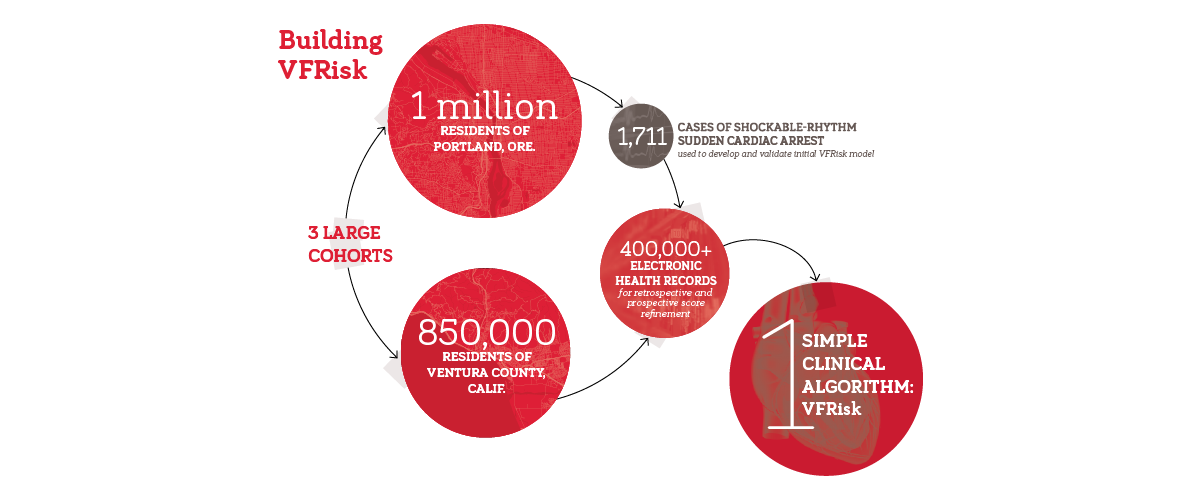
The Smidt Heart Institute cares for a high volume of patients who present with some of the most complex heart rhythm disorders, referred from around the nation. This presents unique opportunities to innovate and advance care through meticulous research and enthusiastic collaboration across subspecialties.
Hybrid approaches in the OR
One recent example is our state-of-the-art hybrid operating rooms that enable our cardiac electrophysiologists and surgeons to jointly employ epicardial as well as endocardial ablation approaches to effectively treat complex, scar-related ventricular tachycardias. This technique is frequently used for patients with advanced heart failure and refractory arrhythmias during open-heart surgery for implantation of mechanical support devices. The combined treatments can also address certain cases of difficult-to-treat atrial fibrillation, with the added benefit of left-atrial appendage closure with a minimally invasive surgical approach.
For atrial fibrillation patients, we have also designed and implemented a comprehensive program that provides precision care across the spectrum of risk-factor modification, pharmacological therapy, medications and procedural approaches for both arrhythmia and stroke management, as well as a comprehensive follow-up clinic. At the bench, our translational scientists continue to innovate to discover and develop novel biological therapies for treatment of these complex arrhythmias.
NOVEL CLINICAL TOOLS FOR PREVENTION OF SUDDEN CARDIAC ARREST
In our Center for Cardiac Arrest Prevention, two decades of research performed among population cohorts totaling nearly 2 million people has culminated in development of a novel ventricular fibrillation risk algorithm (VFRisk) that outperforms left-ventricular ejection fraction in predicting sudden cardiac arrest using noninvasive, widely available clinical markers. This tool, together with emerging data on ethnicity-driven risk factors for sudden cardiac death, holds significant promise for improved prevention efforts. Once refined using artificial intelligence tools and validated in another cohort of 400,000 patients, VFRisk could stimulate the next generation of clinical trials testing implanted defibrillators.
In a separate, ongoing prospective study (PRE-DETERMINE), researchers have reported that polygenic risk scores comprising genetic variants related to coronary artery disease have the potential to augment current approaches for prediction and prevention of this devastating condition.
RELEVANT RECENT PUBLICATIONS
Prediction of sudden cardiac death manifesting with documented ventricular fibrillation or pulseless ventricular tachycardia, JACC: Clinical Electrophysiology; PMID: 3545059
Polygenic risk score predicts sudden death in patients with coronary disease and preserved systolic function, Journal of the American College of Cardiology; PMID:36007985
Biological substrate modification suppresses ventricular arrhythmias in a porcine model of chronic ischaemic cardiomyopathy, European Heart Journal; PMID: 35262692

